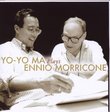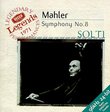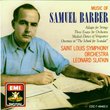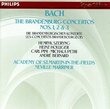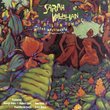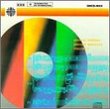| All Artists: Sergey Prokofiev, Bela Bartok, Charles Dutoit, Orchestre Symphonique De Montreal, Martha Argerich Title: Prokofiev: Piano Concertos Nos. 1 & 3 / Bartok: Piano Concerto No. 3 Members Wishing: 2 Total Copies: 0 Label: EMI Classics Release Date: 10/6/1998 Album Type: Original recording reissued Genre: Classical Styles: Forms & Genres, Concertos, Instruments, Keyboard, Symphonies Number of Discs: 1 SwapaCD Credits: 1 UPC: 724355665423 |
Search - Sergey Prokofiev, Bela Bartok, Charles Dutoit :: Prokofiev: Piano Concertos Nos. 1 & 3 / Bartok: Piano Concerto No. 3
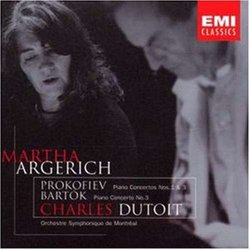 | Sergey Prokofiev, Bela Bartok, Charles Dutoit Prokofiev: Piano Concertos Nos. 1 & 3 / Bartok: Piano Concerto No. 3 Genre: Classical
Martha Argerich first recorded the Prokofiev Third Concerto in the late '60s. Her fiery, hair-trigger playing, abetted by Claudio Abbado's incisive support with the Berlin Philharmonic in top form, set new standards for th... more » |
Larger Image |
CD DetailsSynopsis
Amazon.com Martha Argerich first recorded the Prokofiev Third Concerto in the late '60s. Her fiery, hair-trigger playing, abetted by Claudio Abbado's incisive support with the Berlin Philharmonic in top form, set new standards for this warhorse. No one's come close to topping her extraordinary achievement, not even Argerich herself in this remake with Charles Dutoit and the Montreal Symphony Orchestra. The recording quality, for one, is less well defined. Dutoit imparts less character to the orchestral tuttis than Abbado, and Argerich's fingerwork, remarkable by anyone else's standard, is a shade more casual (compare the extensive unison octave runs: stupefyingly perfect in the early version, brilliantly competent here.). By contrast, the pianist's scintillating, witty traversal of Prokofiev's brash First Concerto shines with youthful ardor. While one can easily admire the lyric fire she brings to Bartók's third Concerto, some of her agogic fussings pull focus from, rather than strengthen, the music's inherent classicism. Zoltán Koscis, András Schiff, and Annie Fischer (all Hungarian pianists, not uncoincidentally) imbue their phrasings with a more internalized, speech-like expression. --Jed Distler Similarly Requested CDs
|
CD ReviewsAWESTRUCK BY ARGERICH!!!!! Melvyn M. Sobel | Freeport (Long Island), New York | 10/13/2000 (5 out of 5 stars) "And dumbstruck, as well! Indeed, in my experience, this is the only recording of his First Piano Concerto wherein the relentless keyboard banging and typical hectoring orchestral volatility take a subservient role to the abundant wonders imbued in this music. Listen, for example, to the majestic unfurling of the glorious opening Allegro brioso of Concerto No. 1--- and, then, after an exciting horn fanfare, Argerich enters with the most phenomenal, articulated, running passagework. It takes the breath away! How well Argerich has "aged" playing this work, how caressing her panache, her quiet intensity. There's no fierceness anymore, no aggression, just revelation and a manifold interconnectedness with the music. Throughout, it's moments like this that propel the performance, that make it so completely appealing. Listen, again, to the flutes' eerie fluttering shortly into the Andante assai--- and how Argerich's magical piano comes whispering, cat-like and hushed. Lastly, thrill to the way Argerich and Dutoit pursue the cyclical material of the Allegro scherzando finale to a hair-raising conclusion. Prokofiev? I'd hardly recognize you. As if this weren't enough, Concerto No. 3 shimmers and glows in the outer movements and is translucent in the Andantino "variations." That Argerich has matured and mellowed is so telling, especially here, in a concerto she first tackled back in 1957. No longer is her need to "showcase" her dynamism or "whiteknuckle" the keyboard. No. No need at all. Thus she turns Bartok's Third Piano Concerto into an almost mystical experience, yet filled with a sense of jubilant humanity. Listen to the interplay between orchestra and soloist in the Allegretto first movement, and that incredibly haunting Hungarian melody Bartok threads throughout. To say this is thrilling would be putting it mildly. Listen, as well, to the heartfelt aura surrounding the Allegro religioso, the plaintive piano figurations, the warmly supportive orchestra. What we hear on this CD is sublimely wrought, mesmerizing, emotionally profound and powerfully gifted pianism. Martha Argerich brings new life to these acerbic masterpieces--- taming them into gentle giants---sympathetically supported by Dutoit. No reservations about the sound: it is full and rich, the piano just forward enough to be perfectly natural. [Running time: 70:12] " Zestful & Refined M. Seeley | Charlotte, NC | 02/25/2000 (4 out of 5 stars) "Martha Argerich's gives the listener an invigorating view of Prokofiev's youthful iconoclasm. Her entire reading is less hard-driven than Richter, but arguably more zestful and animated, less fierce.Her performance of the Third Concerto is perhaps more languid than in her early legendary performance with Abbado. Nevertheless, it is still quite nimble and definitely more open to passing caprice and fancy. It is in the Bartok concerto where she really shines. Some like Bartok a little rougher, but Argerich brings more refinement, giving the composer his own voice rather than imposing her own. This piano concerto has a Mozartean grace to it. She achieves a remarkable, delicate chamber-like balance that has sometimes eluded her in the past. Dutoit and the Montreal Symphony achieve fine support and unity. The recording is clear and naturally balanced. While lacking her trademark spark, all three performances are full of integrity." This is a fabulous CD Craig Matteson | Ann Arbor, MI | 09/09/2001 (5 out of 5 stars) "Don't worry about the nit pickers. If you love this music, this is a fabulous performance of each of these great pieces. If you don't know this music, you owe it to yourself to get this CD and listen to it over and over again.Argerich isn't just an important living pianist, she is one of the all time greats. Whether you always agree with her choices or not, she is always compelling. She is a treasure.Here, the Bartok is performed by Argerich in an absolutely wonderful way. The orchestra does a spectacular job in making this music sounds as wonderful as it is.The two Prokofiev concertos (1 & 3) are done with humor and energy as well as with intellect and taste.Look, if you are still trying to get into twentieth century music, here is a CD that can help you make that move. These pieces are proof of the beauty and greatness of music making in the last century.Listening to this CD is as much fun and intoxicating as your favorite roller coaster ride."
|

 Track Listings (9) - Disc #1
Track Listings (9) - Disc #1